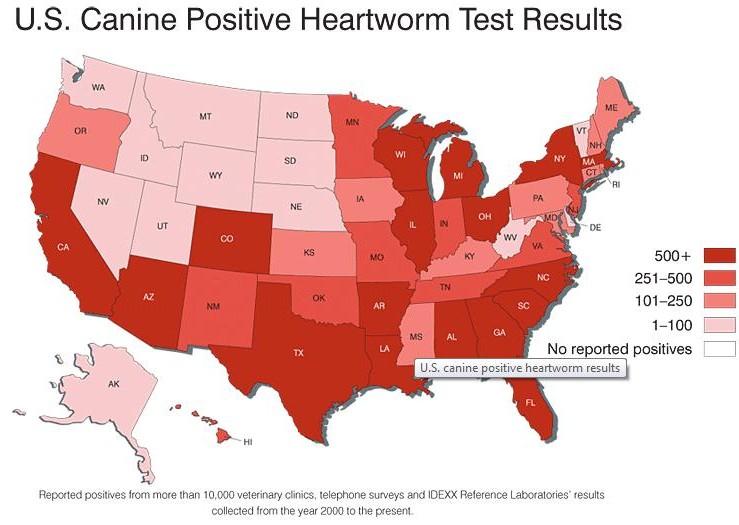Most people by now know that Deer ticks can carry Lyme disease, but other types of ticks can carry it as well along with other diseases. Some of them include: Canine Ehrlichiosis, Babesiosis, Rocky Mountain Spotted fever, Tularemia, and Hepatozoonosis. Ticks are also capable of secreting a toxin that can cause paralysis. Here is a link to a site with good information on ticks and diseases: http://www.dogsandticks.com/
Fleas on the other hand can cause the allergy Dermatitis. Dogs can even receive tapeworms from an infested flea. Fleas acquire tapeworms by eating tapeworm eggs and in turn dogs acquire them by ingesting the infested flea.
What should you do when you find fleas or ticks? For fleas if you go to any pet store you will find all sorts of shampoos, sprays, herbal remedies, dips, and more for their removal and prevention. For ticks the best thing to do is to remove them as soon and quick as possible. To remove a tick grip it carefully with tweezers at the point of attachment. Then pull upwards in a slow but firm manner. Never squeeze the tick's body just the head. Be sure you have removed the whole tick from the skin. After removal, wash the area, then use alcohol or disinfectant to help prevent infection. Click here for an interactive map of North America for Lyme disease, Heart worms, and more.
Did you know that there are almost 3000 types of mosquitoes throughout the world in North America alone, there are several hundred species.
Mosquitoes are most active at dawn, dusk, and early evening so keep your dog indoors at these times. Adult mosquitoes will hang out anywhere it is cool, dark, and damp such as long unkempt grass and weeds.
Any standing water is a potential breeding ground for mosquitoes. Remove all debris in your yard that may hold water. If you own a birdbath, make sure the water does not remain still. There are water agitators you can buy at the store or online. There are also mosquito larva inhibiting pellets you can place in ponds, birdbaths, rain barrels, etc. Remember to recheck after every rainfall and dump any standing water. Keep your rain gutters clean of debris.
Mosquitoes can transmit diseases to your dog such as Heartworm, West Nile virus, Encephalitis, and Yellow fever. Depending on where you live, you may need to give your dog a heartworm preventive year round.
To protect your dog, look for repellents formulated especial for pets that contain either permethrims or pyrethrins, such as Flys-Off spray. Some topical flea and tick control products for dogs contain mosquito repellent. Never use a repellent containing DEET on your dog as it can cause neurological problems.
Pet stores sell sprays and shampoos containing essential oils like citrus or tea tree oil that are highly diluted and safe. However, there are some mosquito repellents posted online using various blends of essential oils while diluted or not are quite unsafe and can cause illness or even death in dogs. While some essential oils are quite safe to use on dogs, you should heavily dilute most. Never put essential oil on an animal without being absolutely sure it's safe. Here is a link to find information about dogs and essential oils: http://www.natural-dog-health-remedies.com/aromatherapy-for-dogs.html






No comments:
Post a Comment